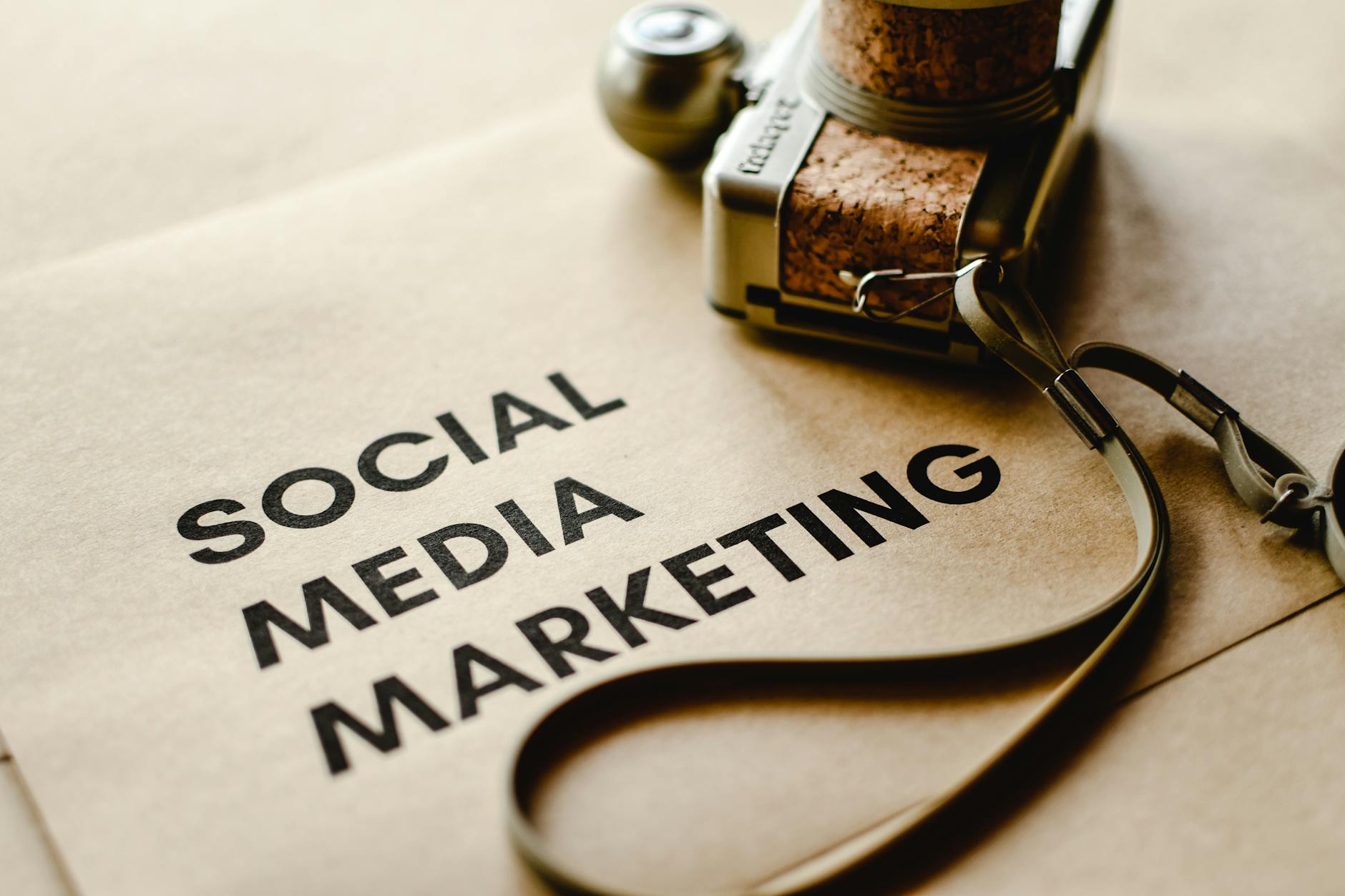Every month, your marketing budget goes out the door. Every month, the reports show your website is ranking. And every month, fewer potential clients actually reach out.
This pattern is becoming the norm for attorneys across every practice area. The disconnect isn't about effort or budget—it's about a shift in how people search for legal help. AI platforms now answer questions, compare options, and shape decisions before a potential client ever sees your website. Your brand voice is competing with algorithmic summaries. Your carefully crafted content is being condensed into a sentence or two that you didn't write and can't control.
This article is a straightforward guide for attorneys who want to understand what's actually happening, why traditional digital strategies are producing diminishing returns, and what practical steps will protect your firm's visibility and client pipeline going forward. For a deeper look at the forces driving this change, explore the Rise of the Digital Trust Economy.
Attorneys are seeing less website engagement each month, even as they invest more in digital marketing. AI Entities are taking over as the gatekeepers of information, often providing answers before clients ever reach your site. This zero-click behavior signals a new reality: fewer visits, less control over the message, and more competition for each second of Consumer Attention Loss.
Your brand voice, once front and center, now competes with algorithmic summaries and AI-driven decision making. Trust is shifting fast, with clients expecting Frictionless Discovery and a Personalized Experience Expectation before speaking to a human. The pressure to maintain Professional Brand Integrity and keep up with the rapid Digital Trust Shift is real.
This post gives you direct steps to help your law firm adapt. You’ll learn how to address the Content Visibility Crisis, optimize for Digital Entity Optimization, and protect your client pipeline even as organic obsolescence grows. For a deeper look at how these changes influence every stage of client acquisition, from AI as the First Touchpoint to Client Journey Compression, explore the Rise of the Digital Trust Economy. This guide focuses on practical, trust-centric strategies to keep your brand visible and valuable, even as attention and credibility move beyond your website.
Zero-Click Behavior: What It Means for Attorneys Today
Zero-click behavior is rapidly redefining online visibility for law firms. Searchers now get direct answers from AI Entities within search results and apps, skipping the need to visit multiple websites for verification or context. This change, fueled by digital trust shift and AI-driven decision making, brings new urgency for attorneys to address visibility, trust, and conversion outside the comfort zone of traditional SEO. The following sections outline how the shift to zero-click affects every part of client acquisition, from first touch to decision.
The Collapse of Traditional Search and Organic Obsolescence
The rise of online search once meant law firms could count on organic rankings to bring steady leads. Your website’s homepage and blog posts worked like digital billboards: more clicks translated to more client inquiries. Firms invested heavily in content, keywords, and optimization.
But the story looks different today:
- AI Entities and instant answers take center stage, often in the form of quick legal definitions, summaries, and local listings.
- Zero-Click Behavior is now common. Most legal searches end without a visit to your site as searchers accept the summary or snippet provided by the platform.
- Organic obsolescence describes this new state. Organic links, even at the top of the page, receive fewer clicks due to enhanced search features and AI-powered summaries.
- Your law firm brand voice risks being filtered or lost, replaced by the algorithm’s interpretation.
This transformation is not a minor shift; it changes how trust forms between your firm and prospective clients. The content visibility crisis means simply creating great content is not enough. You need to adapt strategies to remain visible when traditional methods fade. For practical steps, review strategies in Legal Website Design Strategies, which show how to sustain trust and visibility in this new search environment.
Algorithmic Gatekeeping and Client Journey Compression
Algorithms, powered by complex AI models, no longer just sort results—they control access. These are digital gatekeepers deciding which law firms show up in maps, voice assistants, and answer boxes. AI-driven decision making compresses the traditional multi-step client journey.
A prospective client can:
- See a legal answer, address, or rating provided by an AI entity.
- Skip your website entirely, making a hiring decision without entering your contact form.
- Trust algorithmic overviews, which they see as fast and objective, resulting in frictionless discovery.
This client journey compression reduces your opportunity to make a personal impression. It increases dependence on the perception shaped by AI and the snippets it displays. Law firms feel the strain of professional brand integrity loss, as fewer clients interact with your curated messaging, and more rely on perception vs. reality (AI use).
Key takeaways in the age of zero-click:
- Direct site visits decline as algorithms favor streamlined, answer-first experiences.
- Attention economy dynamics shift; you must capture attention within seconds or get filtered out.
- Emotional dependency on AI grows as users prefer the privacy and speed of quick answers.
Staying competitive now calls for digital entity optimization and trust-centric design, which align your first impression with what prospects discover in AI summaries. Firms should consider direct acquisition strategies and improved presence within third-party platforms to bridge the gap created by organic obsolescence and digital trust shift. Learn more about adapting to algorithmic shifts by understanding the full picture at About Lively Designs.

Photo by cottonbro studio
Decoding the AI Entities: Who Controls the Digital Conversation?
AI Entities now guide what prospects see, shaping legal discovery far before anyone clicks through to your website. Their decisions stand between your law firm and the client’s first impression. This section looks closer at how these digital gatekeepers influence everyday choices and how your online presence must shift to meet new demands.
AI-Driven Decision Making and Personalized Experience Expectation

Photo by Ron Lach
AI-Driven Decision Making now powers the answers most prospective clients see during their first legal search. These systems aggregate information from various public and private sources, then evaluate intent, location, and reputation to present tailored responses instantly. This is what leads to zero-click behavior: users get what they need without taking another step.
What does this mean for your law firm?
- Content you create is interpreted, summarized, or even filtered by AI Entities.
- Algorithmic Gatekeeping selects what details appear in maps, snippets, and trusted responses.
- Clients expect a personalized experience, not just accurate answers. They look for signs of Professional Brand Integrity and trust—within seconds.
This shift brings both challenge and opportunity:
- The content visibility crisis grows as Google, Bing, and other platforms use AI platforms to select which firms they display.
- Client journey compression shortens the time from search to decision, removing traditional touchpoints and handing power to automated systems.
- Attorneys need to focus on Frictionless Discovery, optimizing how their brand appears in AI-fueled search, voice, and chat.
For best results, build out structured data and accurate profiles, and use platforms designed for legal professionals. Quality digital entity optimization is now a must, not a bonus.
Explore more strategies for staying visible in a compressed client journey in Legal Website Conversion: Turn Visitors to Clients.
Emotional Dependency on AI and Digital Entity Optimization
Zero-click experiences aren’t just technical—they change how people feel about making decisions. As more users accept AI as the first touchpoint, an emotional dependency on AI forms quickly. Many now trust algorithmic opinions over actual reviews, shaped by their own need for speed, privacy, and certainty.
Here’s how this plays out in practice:
- People view AI-provided answers as objective, even if they sometimes lack full context.
- They return to AI recommendations for repeat needs, comforted by the ease and efficiency.
- The perception vs. reality (AI use) gap forces law firms to tighten their digital message and guard their reputation across all platforms.
To meet this expectation:
- Shift focus from just ranking on Google to digital entity optimization across all major AI Entities.
- Adopt trust-centric design on all profiles and knowledge panels where potential clients can see your brand.
- Implement direct acquisition strategies, such as updating local directories and maintaining a steady flow of accurate, high-value content.
AI Entities now filter your Law Firm Brand Voice. Your control is limited on third-party platforms, so aim for message consistency and ongoing accuracy. As the attention economy becomes more competitive, even minor lapses in digital identity or outdated listings can drive Consumer Attention Loss and weaken trust.
You can address the attenuation of trust and optimize digital assets by evaluating where your brand’s reality matches its perception in AI summaries and using these insights to guide practical improvements.
The Content Visibility Crisis: Where Trust and Attention Have Gone
Law firms face a sharp shift in how trust and awareness form online. As AI Entities and zero-click behavior become the norm, fewer prospects reach your website. The traditional attention economy now unfolds within snippets, local panels, and AI-driven answers. This section explores why every digital touchpoint must reflect your law firm brand voice, and how to make your expertise discoverable without friction.
Trust-Centric Design and Law Firm Brand Voice: Why Digital Integrity Matters

Photo by KATRIN BOLOVTSOVA
Your website is no longer your only brand advocate. Trust often forms before prospects see your site, with AI Entities filtering your voice through search summaries and algorithmic gatekeeping. This new ground zero of trust demands that your law firm’s professional brand integrity and authentic voice reach across all digital touchpoints.
Key actions for building trust-centric design in low-visit conditions:
- Consistent Brand Voice: Maintain clarity and integrity in all bios, profiles, and legal directories. AI uses these as source material to define your brand's reputation.
- Professional Brand Integrity: Make sure your credentials, case results, and testimonials are accurate and regularly updated. Outdated profiles can harm perception faster than outdated web content.
- Authenticity Everywhere: Use natural language and keep messaging client-focused, especially where your firm is summarized by third parties or AI.
Clients notice inconsistencies. Even minor details across listings and snippets will fuel perception vs. reality (AI use) problems. This risk grows as more people accept AI as the first touchpoint. For more guidance on sustaining trust visually and structurally, see these Legal Website Optimization Strategies.
Content Strategies for Frictionless Discovery
Zero-click behavior creates a content visibility crisis. When fewer people click through, law firms need frictionless discovery. You only have moments to earn attention, and AI-driven decision making means content must be structured for maximum surface area—even in third-party contexts.
Effective approaches for AI-optimized, low-friction discovery:
- Rich Snippets and Structured Data: Format answers on your site for easy extraction by AI Entities, making it more likely your firm appears in voice search, local panels, and direct answers.
- Complete, Accurate Profiles: Update Google Business, legal directories, and review platforms weekly. Third-party profiles now act as extended landing pages.
- Short-Form, Clear Content: Use precise, easy-to-read language in all bios and summaries. Make your strengths unmistakable in only a few seconds.
- Direct Acquisition Strategies: Increase visibility within major legal networks and business portals. Don’t rely on organic listings alone. Position your firm at decision points shaped by AI-Driven Decision Making.
To address organic obsolescence and client journey compression, every opportunity for contact must align with your law firm brand voice and support a personalized experience expectation. Keeping messaging tailored and current across all channels will strengthen trust even as direct site visits drop. For more tactics on winning clients in compressed journeys, review these Legal Website Conversion Tips.
Aligning every touchpoint with trust-centric design now matters as much as site performance or keyword strategy. The digital trust shift isn’t just about data, it’s about delivering your expertise wherever clients may find you.
Future-Proofing Your Law Firm: Direct Acquisition and Brand-First Tactics
Traditional digital tactics built around organic reach are struggling. The rise of AI Entities and zero-click behavior brings challenges like organic obsolescence, growing Consumer Attention Loss, and the need for law firms to maintain digital trust as first impressions happen elsewhere. To keep your client pipeline steady, you need strategies that do not rely only on search rankings. Instead, focus on direct acquisition, professional brand integrity, and optimizing the perception that prospects—and AI—hold of your firm.
Organic Obsolescence vs. Direct Acquisition Strategies

Photo by Eva Bronzini
Organic reach is fading as AI takes over the top of search results. Where your site and content once lived, algorithmic gatekeeping now shortens the client journey, placing AI as the first touchpoint for many legal searches. Organic obsolescence sets in when fewer clients reach your website by simply clicking a blue link. So what works instead?
Focus your efforts on direct acquisition strategies outside classic search:
- Digital Networking
Build relationships through private legal networks, professional groups, and digital events. Direct introductions often bypass search algorithms entirely. - Interactive Tools
Offer practical checklists, calculators, or chat modules on third-party legal sites. These capture attention when clients use zero-click resources. - Trust-Based Content
Produce quick, shareable materials for referral partners and local business platforms—the kind that gets summarized and re-shared by AI Entities. - Accurate Third-Party Profiles
Regularly update your law firm's profiles and listings. These are now often referenced by AI-driven decision making long before a prospect contacts you.
Direct channels like these control the narrative when organic attention drops. They help you sidestep the content visibility crisis and ensure your law firm brand voice stands out even as attention shifts to platform summaries. Find more practical advice in these effective digital strategies for lawyers.
Professional Brand Integrity and Digital Trust Shift
Client decisions are now shaped before a single conversation happens. Your professional brand integrity—the reputation you have for honesty, clarity, and consistency—must unify across all digital spaces. This is non-negotiable with AI interpreting and summarizing your presence. Any inconsistency between your real message and what AI lifts from public sources creates perception vs. reality (AI use) problems.
Key steps to solidify digital trust:
- Unified Brand Voice
Keep messaging consistent across your website, social channels, and legal directories. Mismatched bios, outdated results, or gaps confuse AI and drive away prospects. - Transparent Credentials
Showcase accreditations, awards, and client testimonials in every digital location, not just on your site. AI Entities reference these as validation; ensure they are accurate and current. - Comprehensive Digital Entity Optimization
Take charge of how your brand appears in local listings, knowledge panels, and legal apps. Every snippet, profile, and summary should reinforce professional brand integrity and promote a trust-centric design. - Align with Personalized Experience Expectation
Provide clear, client-focused content in all places clients may first interact. Attorneys who embrace the digital trust shift look for emotional dependency on AI as an ally, not a barrier.
A unified, strong presence keeps your reputation as the anchor, regardless of how a client finds you. It supports frictionless discovery and matches how people now evaluate legal service providers in the attention economy. For more on building trust and digital authority, see how to stand out with online client testimonials.
By prioritizing direct acquisition and a unified brand approach, your firm adapts to AI-driven decision making and guards against consumer attention loss—future-proofing your client pipeline as digital trust keeps shifting.
Conclusion
Zero-click behavior, AI Entities, and the Digital Trust Shift have changed how law firms win new clients. You now face fewer direct visits and a shrinking window to build trust. The focus has shifted from chasing clicks to building Professional Brand Integrity and optimizing every aspect of your digital presence. AI-Driven Decision Making, Algorithmic Gatekeeping, and Client Journey Compression mean that trust must be clear and consistent across all platforms, not just your own website.
If you rely on old traffic metrics or wait for organic rankings to recover, you risk falling behind as the Attention Economy becomes more demanding and prone to Consumer Attention Loss. Prioritize Digital Entity Optimization, Direct Acquisition Strategies, and Trust-Centric Design in every digital touchpoint. Address the Content Visibility Crisis at its roots. Ensure your Law Firm Brand Voice stands out, regardless of where or how a prospect finds you.
Rethink your marketing priorities now. Read how other firms are adapting with effective law firm website design and find new ways to turn visibility into real client connections. Want to see proven results? Review Webflow SEO Success Stories to learn what works—then act before the next shift widens the gap. Thank you for reading. Share your experience and start the conversation that can move your practice forward.












.webp)